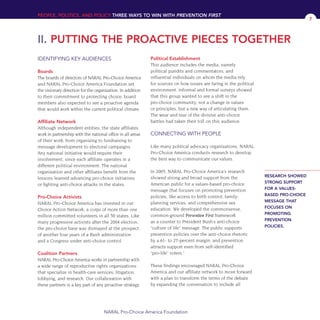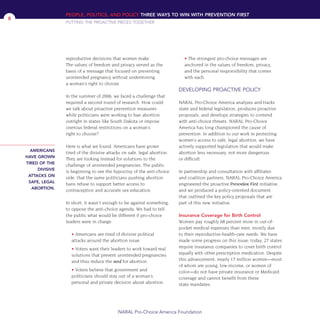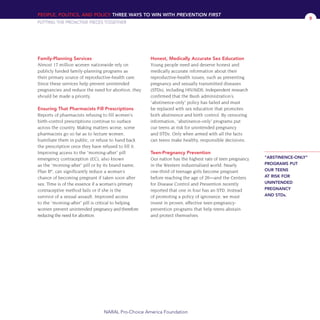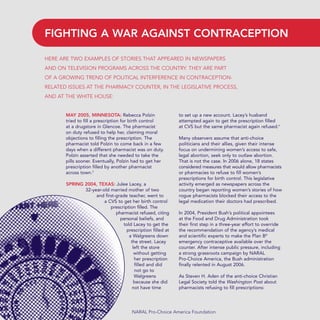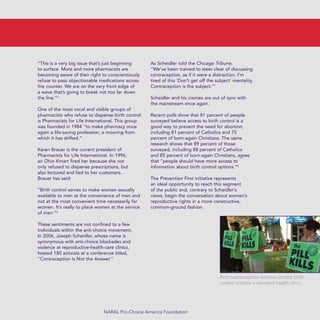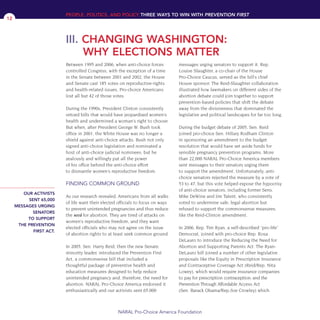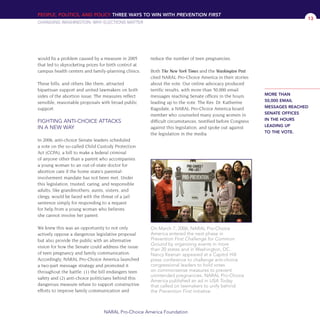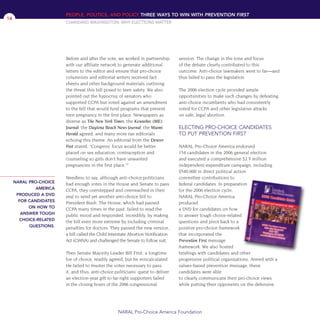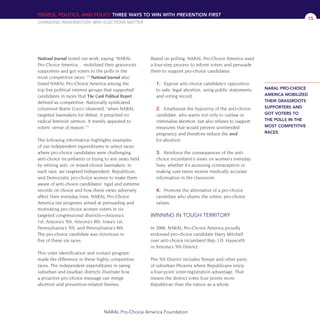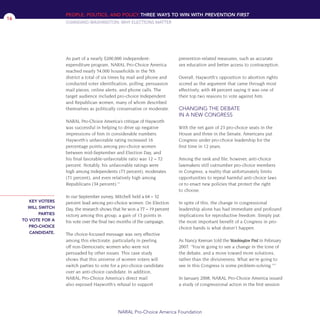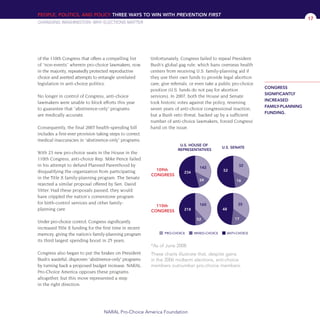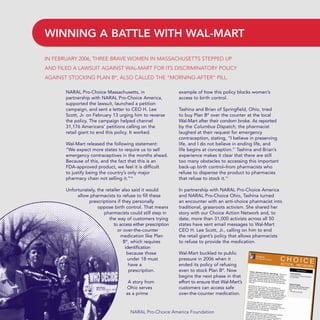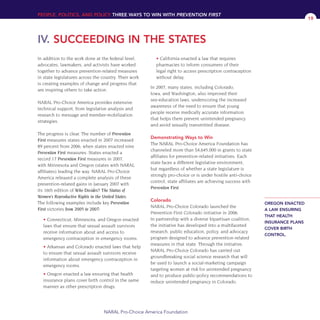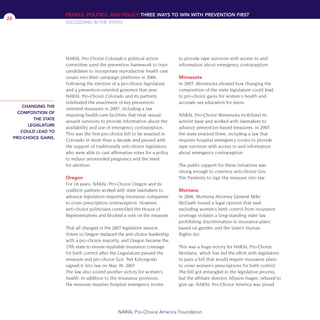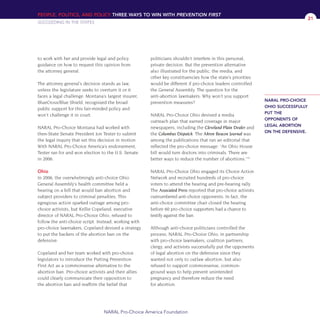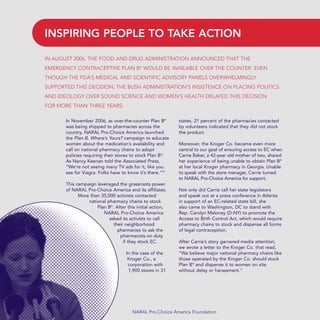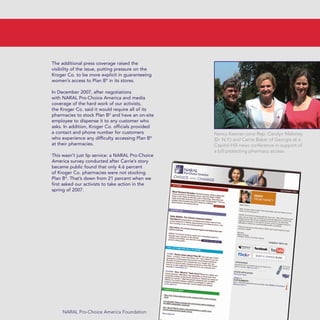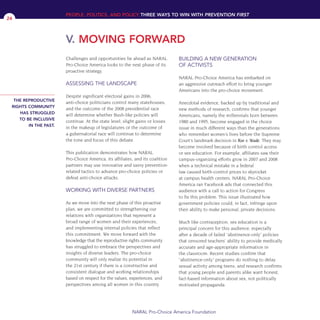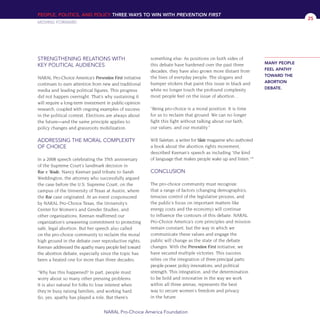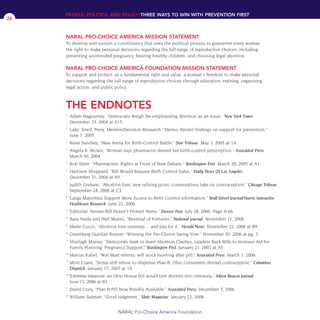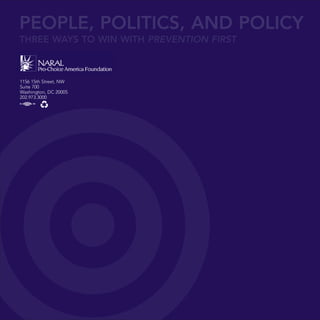This document summarizes the strategic shift undertaken by NARAL Pro-Choice America to advance a more proactive "Prevention First" agenda focused on reducing unintended pregnancies and abortion rates. After facing challenges following the 2004 election, NARAL identified key audiences, developed messaging emphasizing prevention over division, and pursued proactive policy proposals around expanding access to contraception. Research showed broad public support for this approach as an alternative to anti-choice rhetoric. The document outlines NARAL's implementation of this strategy through identifying stakeholders, connecting prevention values to the public, and championing policies like requiring insurance coverage for birth control.
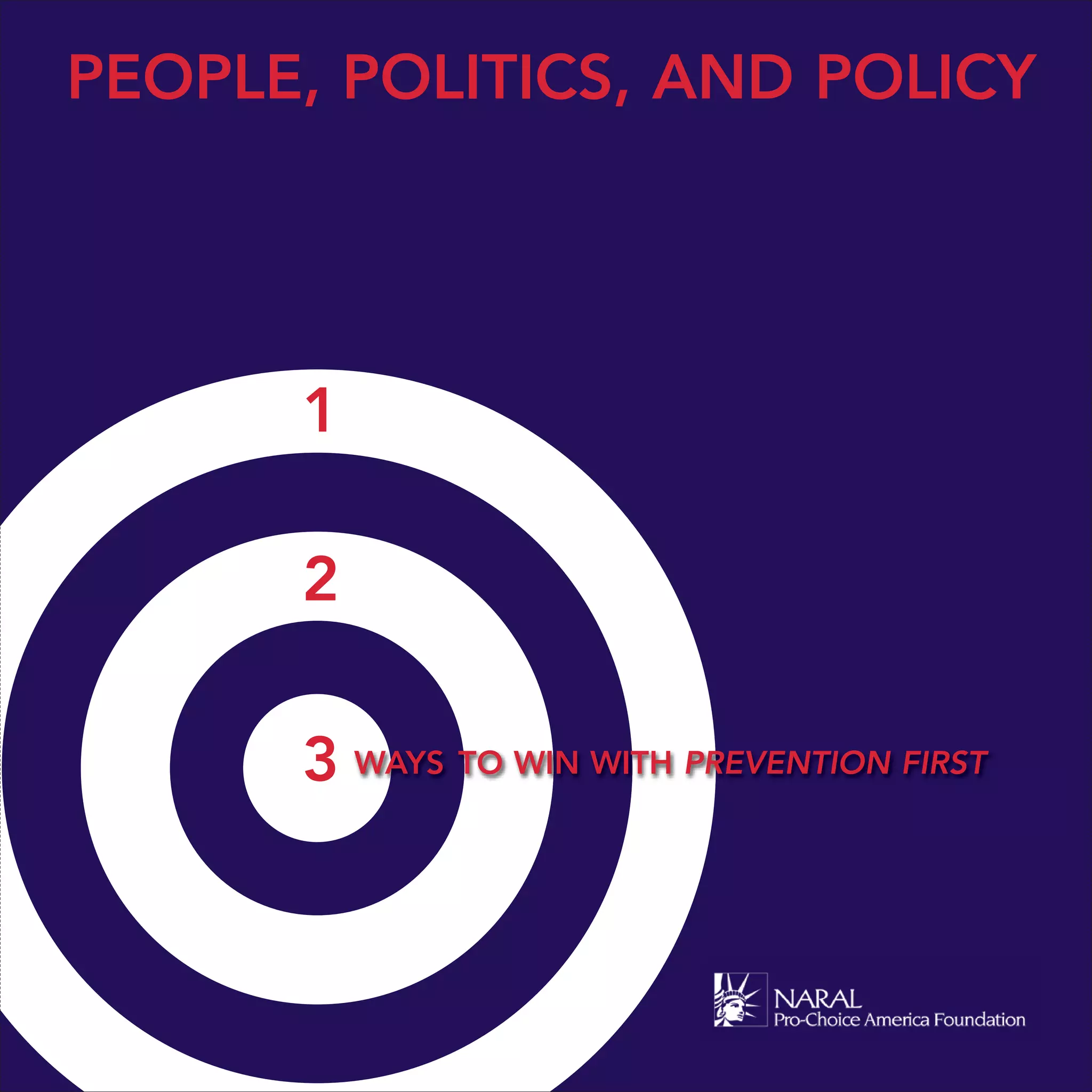
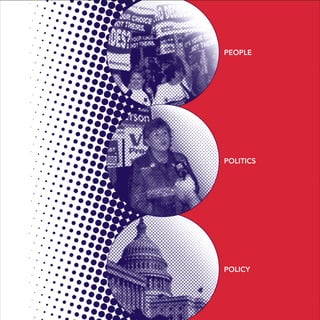
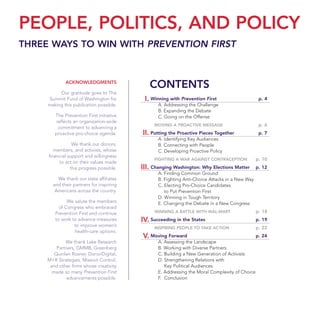
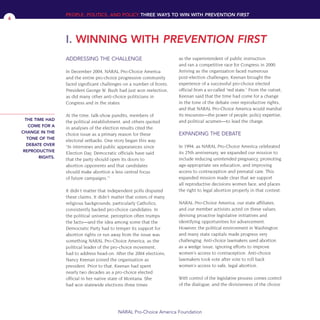
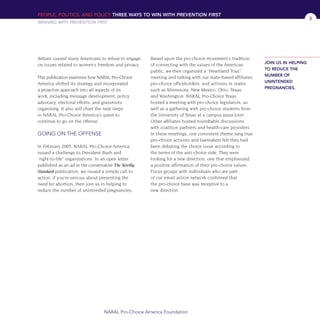
![The American Prospect described this approach
to the debate on choice as “a cunning strategy”
that allows “pro-choice advocates to define the
terms of the debate.”
Jodi Enda, “The Women’s Views, The Pro-Choice
Movement Has Seen Moral Complexity as it’s
Enemy. But Moral Complexity is Exactly Why
Choice Must be Saved.” American Prospect.
April 1, 2005
“[P]ro-choice leaders like Keenan, who is at
once forthright and politically savvy, are honing
a message about American values of personal
responsibility, freedom, and privacy. It’s a new
stance and a realistic one.”
Laura Berman, “Michigan Rally Shows Abortion
Rights Camp Faces an Uphill Battle.” Detroit
News, April 25, 2006
“Indeed, the timing is perfect for a challenge
to anti-abortion groups: If you want to decrease
the number of abortions in this country, join
us in a high-profile campaign to increase
contraceptive use.”
Cynthia Tucker, “Contraception
The Best Truce in Abortion War.” Atlanta
Journal-Constitution, January 22, 2006
“After years of playing defense, NARAL
Pro-Choice America has gone on the offense.”
Ellen Goodman, “Prosecution or Prevention?”
Washington Post Writers Group, March 16, 2005
“[P]ro-choice abortion activists [are] getting
smarter about their strategy.”
Andrew Sullivan, “The Case For Compromise
on Abortion: How The Pro-Choice Side is
Wielding a Principle That’s Tough to Argue
With.” TIME, March 7, 2005
MOVING A PROACTIVE MESSAGE
NARAL Pro-Choice America Foundation
MEMBERS OF THE MEDIA HAVE NOTICED PREVENTION FIRST
AND NARAL PRO-CHOICE AMERICA’S LEADERSHIP.
Gov. Jennifer Granholm (D-Mich.) speaks
out in support of prevention policies at a
Statehouse rally.
36349mvpR4_text:36349p001_24r1 8/22/08 11:38 PM Page 6](https://image.slidesharecdn.com/456b9653-0aeb-4a93-a374-e776ecaadb0b-170216175350/85/naral_prevention_first_report-6-320.jpg)
